Speakers and Session Chairs
(May be subject to change)The Australian IPv6 Summit 2009 will present expert speakers, local and international, including:
- Karl Auer, IPv6Now
- Fred Baker, Cisco Systems
- Darren Beauchamp, AGIMO
- Michael Biber, IPv6Now
- Dr Paul Brooks, Vocus
- Chris Buckridge, RIPE NCC
- Leslie Daigle, Internet Society
- Greg Davies, Telstra
- Peter Elford, Cisco (Chair)
- John Gibbins, CSIRO
- Nicolas Guilbaud, Google
- Patrick Grossetete, Arch Rock
- Simon Hackett, Internode
- Tony Hill, ISOC-AU
- John Hillier, AGIMO
- Kevin Karp, PPS Internet
- Latif Ladid, IPv6 Forum
- Dr Kate Lance, IPv6Now (Chair)
- Steve Maddocks, AARNet
- Dr Bill Petreski, Ai Group (Chair)
- Greg Phillips, Verizon
- Skeeve Stevens, eintellego
- Orcun Tezel, 3Com Asia Pacific
- Peter Tseronis, US Dept of Energy
- Paul Wilson, APNIC
- Richard Wood, InternetNZ
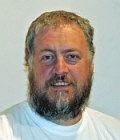 Karl Auer
Karl Auer Karl Auer, BA(ANU) GDAC(CQU), is a director of Nullarbor Consulting and Technical Manager of IPv6Now. He has worked in IT for well over twenty years. He founded one of the first and largest Internet Service Providers in the Australian Capital Territory. He was the founding Vice President of the Internet Society of Australia. He has extensive experience in analysis, design, programming, network support, network administration and network management, including five years at the Australian National University and eight years with the Data Communications group at the Swiss Federal Institute of Technology.
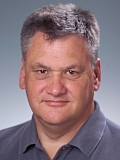 Fred Baker
Fred Baker Fred Baker, who is a Fellow at Cisco Systems, has worked in data communications since 1978, and in Internet technologies since 1986. He chaired the IETF 1996-2001, has chaired a number of working groups in that forum. He has published 43 RFCs, on topics including network management, PPP, IPv4/IPv6 Quality of Service, IPv6 operations, forensic access, and others. He was also a member of the FCC Technical Advisory Board in 2004, and has contributed to projects such as the Smart Grid and DoD's Global Information Grid.
Darren Beauchamp
Darren Beauchamp is Director, Architecture and Standards Branch, Australian Government Information Management Office (AGIMO), a Business Group of the Department of Finance and Deregulation.
Darren completed ten years service with the Royal Australian Air Force where he was employed in technical streams including aircraft avionic maintenance and simulator software. This was followed by eight years in the private sector designing and programming embedded microprocessor control systems in the gaming and vending industries. Darren joined the Australian Public Service in 1999 and has been actively involved in the provision IT services (both operational and strategic) to the Department of Defence, and the Department of Human Services.
Darren moved to AGIMO in July 2009 to lead the Government Architecture, and Business Process Transformation teams, which include responsibility for the Whole-of-Government transition to IPv6.
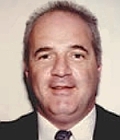 Michael Biber
Michael Biber Michael Biber is founder and current President of the IPv6 Forum Downunder and was Chair of the AARnet IPv6 Working Group. During 1998-2005, Michael Biber was the Executive Director of the Advanced Networking Forum Australia (ANFA). This group managed the MPLS Forum, ATM Forum and Frame Relay Forum representation in Australia. Michael was the first Public Officer of the Australian Communications Industry Forum (now Comms Alliance), the telecommunication industry self-regulatory body. Michael leads strategic architecture projects for large, complex carrier and enterprise network solutions. These range from regional/rural broadband network to dedicated government and enterprise networks throughout Australia and internationally. Michael is the Professional Services Manager at IPv6 Now Pty Ltd, a lead technology trainer, and presents at numerous national and international technology conferences.
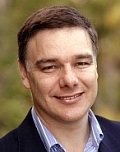 Dr Paul Brooks
Dr Paul Brooks Paul Brooks brings to Vocus a background in large-scale network engineering and service provider operations, having designed, operated and managed carrier-grade international and national telecommunications networks for more than 12 years.
During the 1990s Dr Brooks engineered the AU/NZ Internet networks for Sprint International (later Global One). During his time at Global One he headed up the APAC Engineering group deploying the global ATM, Frame Relay, MPLS and IP core network throughout. Dr Brooks also pioneered the use of HDSL technologies on the Australian copper network. Following Global One, he was the CTO of TransACT Communications, where he was responsible for IT engineering the voice, data and video triple-play services. Returning to Sydney in 2004 he formed an independent telecommunications advisory practice providing consulting to enterprises, carriers, ISPs and Government.
Dr Brooks is a recognised expert in DSL technologies, ULL, LSS and access network design. He has been appointed as an independent technical expert for the ACCC and the NZ Commerce Commission bringing UCLL to NZ. He is active within the Communications Alliance chairing two working groups in 2007 focussing on VoIP Interprovider Interconnection and Interprovider QoS for IP Networks, and is a frequent speaker at industry conferences. He is a Foundation Member and Director of ISOC-AU, the Australian chapter of the Internet Society, and holds a PhD in Astrophysics from UNSW.
Chris Buckridge
Chris Buckridge has worked in the Regional Internet Registry (RIR) system for the past six years. Starting at APNIC in 2003, he relocated to Amsterdam in 2006 and currently works in the Communications Department of the RIPE NCC, RIR for Europe, the Middle East and parts of Central Asia. His role at the RIPE NCC has focused on research and documentation, and he has been heavily involved in the promotion of IPv6 adoption and Internet governance issues.
 Leslie Daigle
Leslie Daigle Leslie Daigle is the Chief Internet Technology Officer of the Internet Society, providing strategic leadership on important technical issues as they relate to ISOC's ongoing programs. Leslie has been actively involved in shaping the Internet's technical evolution for more than a dozen years.
She has worked with the Internet Engineering Task Force (IETF) since 1995, and was an appointed member of the related Internet Architecture Board (IAB) from March 2000 to March 2008. As the elected Chair of the IAB from 2002 to 2007, Leslie steered the IAB and the related IETF through a period of important industry and institutional change by working with diverse technical groups to align their interests and develop sustainable relationships.
Apart from her leadership role with the IAB, Leslie has been a strong promoter of the development of Internet identifiers and directory systems, which allow for the creation of standards-based, interoperable application protocols to support end-users across the Internet in their use of remote resources. She recently published standards for DNS-based application service discovery. Leslie holds an M.Sc. in Computing & Information Science from the University of Guelph, and a B.Sc. in Math and Computer Science from McGill University. Leslie was most recently a Consulting Engineer at Cisco Systems.
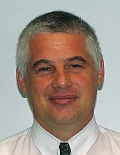 Greg Davies
Greg Davies Greg Davies is a senior technology architecture specialist in Telstra's Chief Technology Office and is responsible for investigating future technologies that will impact Telstra's business.
Greg holds a Bachelor of Electrical and Computer Systems Engineering from Monash University. Greg joined Telstra in 1985 working in the Network and Technology Group. Since then he has undertaken a variety of roles, particularly in the areas of network operations strategy and technology strategy. Most recently this has included the development of an IPv4 to IPv6 transition strategy for Telstra.
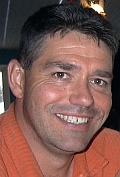 Peter Elford (Chair)
Peter Elford (Chair) Peter Elford is a sixteen year veteran at Cisco and as the Public Sector Solutions Architect is responsible for articulating an architectural approach to how networked technologies can provide positive outcomes for Australia public sector agencies. Prior to taking up this position in early 2007, Peter held roles as the Federal Region Manager, responsible for Cisco's engagements with the Australian Federal sector, as a Corporate Consulting Engineer working on residential broadband solutions and a range of activities related to network security, and as both a Technical Marketing Engineer and Systems Engineer. Prior to joining Cisco in February 1993 he worked for three years at the Australian Academic and Research Network (AARNet), where he had responsibility for much of the hands on engineering for the embryonic Australian Internet. Peter holds a BSc (Hons) from the Australian National University.
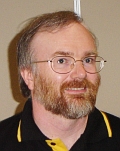 John Gibbins
John Gibbins John Gibbins has been an IT nerd for over three decades, doing networking before IPv4 was commonly used in Australia. For around 20 years he has been listening to talk of IPv4 addresses running out and thinks they probably will run out sometime. He took on IPv6 within CSIRO because it looked interesting and he felt someone needed to do something about it. John has been with CSIRO for 11 years and is currently the Leader of the Security Operations Team within the CSIRO Information Management & Technology group.
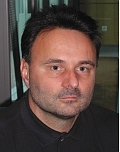 Patrick Grossetete
Patrick Grossetete Patrick Grossetete is Technical Director of Product Management and Customer Solutions at Arch Rock, a pioneer in IP-based wireless sensor network technology. Previously Patrick led a product management team at Cisco Systems, responsible for a suite of Cisco IOS software technologies, including IPv6 and IP Mobility. Patrick is a regular speaker at conferences and industry events, including the IPv6 Forum which he joined in 1999 as Cisco representative.
Patrick is a co-author of Global IPv6 Strategies and Deploying IPv6 Networks, published by Cisco Press. In June 2003, he received the "IPv6 Forum Internet Pioneer Award" at the San Diego summit. Before joining Cisco in 1994 as a Consulting Engineer, he worked at Digital Equipment Corporation as a consulting engineer and was involved with network design and deployment. He received a degree in computer science from the Control Data Institute, Paris, France. Patrick lives near Paris and is a fan of MotoGP.
 Nicolas Guilbaud
Nicolas Guilbaud Nicolas Guilbaud is a network engineer, Netops team, working on the global network supporting Google applications. Prior to joining Google, Nicolas was part of the network architecture team in Optus. Earlier, he was VP of network engineering for UPC in Europe.
 Simon Hackett
Simon Hackett Simon Hackett, Managing Director, Internode, is one of Australia's best-known technology entrepreneurs. As managing director of national broadband trailblazer Internode, Simon leads Australia's largest privately owned broadband company. Established in 1991, Internode has more than 140,000 broadband customers and 330 employees, a carrier-grade international telecommunications network and a range of value-added broadband services.
Simon leads Internode with a unique combination of technical insight and entrepreneurial energy. While renowned for its customer-friendly service, Internode constantly pushes back the boundaries of broadband innovation. In 2005, Internode was the first Australian company to launch commercial ADSL2+ broadband. In 2007, the company pioneered ADSL2+ Annex M services. In July 2008, Internode became the first national ISP to offer its customers direct access to Internet Protocol version 6 (IPv6) as part of its standard service.
In August 2008, Simon's achievements were acknowledged with the Telecommunications Ambassador award from the Communications Alliance. This annual award recognises an outstanding individual who has shown strong leadership and made a significant and visible contribution to the Australian communications industry. Simon won the Bulletin-Microsoft Smart 100 IT & Communications Award in 2004 and was an SA winner in the Ernst & Young Entrepreneur of the Year awards in 2005. Simon is also a Fellow of the Australian Computer Society.
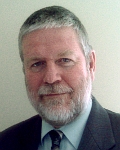 Tony Hill
Tony Hill Tony Hill became President of the Internet Society of Australia in 2001, having previously been the Society's first Executive Director. ISOC-AU is the Australian Chapter of the worldwide Internet Society, the umbrella organisation for Internet technical standards and architecture. Over recent years, ISOC-AU has grown to represent more than 40,000 Australian Internet users through its organisational and individual members. Now ISOC-AU is a respected voice in policy development and public debate, providing sound technical and professional understanding of the Internet with a broad users' perspective. Tony runs his own consultancy, Capital Hill Consulting Pty Ltd, to provide high-level advice on large-scale research funding, strategic research management and challenging collaboration issues. His academic study includes economics and geography at the undergraduate level, a Masters of Environmental Studies, and a Graduate Certificate in Public Sector Management.
Tony was chair of the Australian National ICT Industry Alliance from 2005 to 2007. He has been leading the discussion of IPv6 in Australia as chair of the ISOC-AU IPv6 Special Interest Group, and chair of the steering committee for the Australian IPv6 Summit. In 2007 he jointly founded IPv6Now to support uptake of the next generation of Internet technology.
John Hillier
John Hillier is Assistant Director, Architecture and Standards Branch, Australian Government Information Management Office (AGIMO), a Business Group of the Department of Finance and Deregulation.
John joined the Australian Commonwealth Public Service in 1981 and worked in the Departments of Social Security and Community Services throughout the 80s. He joined the private sector in 1988 and spent the next 17 years in various ICT companies supplying goods and services back into the government. He re-joined the APS in 2004 in the then Department of Industry, Science and Tourism as a Business Analyst/Contracts Manager.
John moved to AGIMO in 2007 and began work on the developing the Whole-of-Government IPv6 Transition Strategy. He convened the IPv6 Community of Interest that finalised the Australian Government IPv6 transition in December 2007. He is now the convenor of the IPv6 Community of Expertise (CoE) that oversees the whole-of-government transition to IPv6. The CoE revised the transition strategy to incorporate the industry and international shifts in 2008. He is the initial point of contact within AGIMO for any IPV6 related issue.
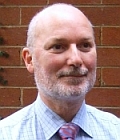 Kevin Karp
Kevin Karp Kevin Karp, B.E.(Hons), B.Sc, GradDipSIA, is a director of IPv6Now and the founder and Managing Director of PPS Internet. He has over 25 years of experience in board level commercial management of ICT and investment industry enterprises. In 1995 PPS established Semper.Net, one of Australia's first Internet managed services networks. In 2007 Kevin negotiated and directed PPS's acquisition of StudentNet, Australia's oldest schools education network, and jointly founded IPv6Now. He is a founding member and Secretary of the Internet Society of Australia, a Senior Member of the Association for Computing Machinery (ACM) and a Fellow of the Financial Services Institute of Australasia (FINSIA).
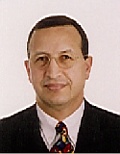 Latif Ladid
Latif Ladid Latif Ladid holds the following positions: President, IPv6 FORUM, Chair, European IPv6 Task Force, Emeritus Trustee, Internet Society, Board Member IPv6 Ready & Enabled Logos Program,and Board Member World Summit Award.
He is a Senior Researcher at the University of Luxembourg on multiple European Commission Next Generation Technologies IST Projects: 6INIT, www.6init.org - First Pioneer IPv6 Research Project; 6WINIT, www.6winit.org; Euro6IX, www.euro6ix.org; Eurov6, www.eurov6.org; NGNi, www.ngni.org; Project initiator SEINIT, www.seinit.org, and Project initiator SecurIST, www.securitytaskforce.org.
Latif initiated the new EU project u-2010 to research Emergency & Disaster and Crisis Management, www.u-2010.eu, launched the Public Safety Communication Forum, www.publicsafetycommunication.eu, supported the new IPv6++ EU Research Project called EFIPSANS, www.efipsans.org, supported the new safety & Security Project using IPv6 called Secricom, www.secricom.eu, and coordinates the new EU project IRMA (Integrated Risk management for Africa using IPv6), www.irma.lu.
He is also a Member of 3GPP PCG (www.3gpp.org), 3GPP2 PCG (www.3gpp2.org), Vice Chair, IEEE ComSoc EntNET (www.comsoc.org/~entnet/), member of UN Strategy Council, member of IEC Executive Committee, Board Member of TSF (Technologies Sans Frontières), Board member of AW2I, Board Member of Nii Quaynor Institute for Research in Africa, and member of Future Internet Forum EU Member States (representing Luxembourg) Luxembourg, July 2009.
 Dr Kate Lance (Chair)
Dr Kate Lance (Chair) Kate Lance is Communications Director of IPv6Now. She holds a PhD in astronomy and has worked in Internet technology for twenty years. She was System Manager and Director of Internet Services at the pioneering ISP Connect. She helped found the Internet Society of Australia and was its Executive Director from 2002 to 2006, which led to her involvement in IPv6. She also creates websites and writes – her history of the charmed life of a pearling lugger, Redbill: From Pearls to Peace, won the Western Australian Premier's Book Award 2004 for Non-Fiction. Her second book, Alan Villiers: Voyager of the Winds, was published in 2009.
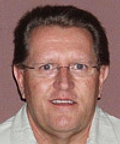 Steve Maddocks
Steve Maddocks Steve Maddocks is Director of Operations at AARNet, Australia's Academic and Research Network. Steve has been designing, building and operating high-speed research and education networks for more than 20 years.
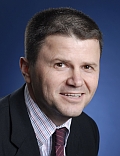 Dr Bill Petreski (Chair)
Dr Bill Petreski (Chair) Dr Bill Petreski is Principal Advisor, Information & Communications Technology (ICT) Industry, Australian Industry Group (Ai Group). Based in Melbourne, he is responsible for leading industry development with new strategies for the Ai Group. As Principal Advisor he consults with industry members to help them understand new and evolving technology and its impact on their business and workforce. He also consults with government departments, at both state and federal levels, on industry trends and strategies that will support the overall growth in Software & Services, Technology Hardware & Equipment and Telecommunications Services sectors which ultimately define the ICT Industry.
Dr. Petreski received a postgraduate degree - Doctor of Philosophy (Ph.D.) in Physics (Fibre Communications) - in 1997 from Victoria University, in Melbourne, after completing a Bachelor of Applied Science (B.App.Sc.) in both Computer Science and Physics. His academic research had applications in fibre communications, advanced manufacturing, industrial sensing and biological & medical imaging.
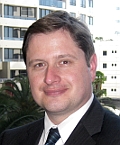 Greg Phillips
Greg Phillips Greg Phillips is head of solutions for Australia and New Zealand for Verizon Business. He manages a team of 10 solutions engineering staff supporting pre-sales activities across all sales segments throughout Australia and New Zealand. Phillips has over 10 years experience in the telecommunications industry, six of which have been with Verizon Business in the solutions engineering team, managing and supporting large and complex opportunities for multinational clients.
Prior to his position at Verizon Business Phillips was a principal technical solutions consultant at British Telecom, managing the Melbourne pre-sales engineering teams for large and complex transformational opportunities. Phillips has also held the role of pre-sales network engineer at NCR for just over two years and was responsible for systems integration works and pre-sales activities for many multi-national customers. He started his career as an electrical engineer, where he spent seven years working on large complex scopes of work, designs and contract management for multi-million dollar architectural projects.
Phillips has a bachelor of engineering from the University of Queensland, a keen interest in Australian rules football and golf, has been married just over a year, and is based in Melbourne, Australia.
 Skeeve Stevens
Skeeve Stevens Skeeve Stevens has spent the last 15 years designing, building and managing small to medium ISP networks. The last three years he has been the CEO and Technical Director of eintellego, a network consultancy specialising in ISP and ISP-like networks. A highlight in 2008 was when eintellego supplied, built and managed the entire World Youth Day 2008 network which serviced thousands of staff and media 24/7 at all major venues.
eintellego has spent much of 2009 working on IPv6 deployments and developing methods to help its ISP and corporate customers get ready for the future with IPv6. Skeeve Stevens is passionate about Internet policy and Internet development in the Asia Pacific Region.
Orcun Tezel
Orcun Tezel is Director, Regional Product Marketing and Management, 3Com Asia Pacific, located in Singapore. As Director of the Pre-Sales team, Orcun Tezel oversees a regional team of technical sales engineers who are technical experts across 3Com's technology portfolio and help evangelize technical solutions to the sales organization and business partner community. Since joining 3Com In 2000, Orcun Tezel has held various technical positions of increasing responsibility, including running a Pre-Sales team of engineers to provide solutions & serving as the lead technical consultant for some of 3Com's largest accounts in the region.
Orcun Tezel has more than 11 years of experience in the networking and telecommunications industries and extensive experience in designing and implementing converged solutions for large organizations. Prior to joining 3Com in 2000, he served in pre-sales and post-sales engineering positions for a leading Internet Service Provider. Orcun Tezel is a regular speaker at many industry events including: SMB World Asia, UC World Asia, IBM Interaction & Executive Summit. Orcun Tezel earned a bachelor's degree in Engineering from Yildiz Technical University in Turkey, and he also holds MBA in Sales Management and MSc. degree in Communications Technology.
 Peter Tseronis
Peter Tseronis Recognized as a Federal Information Technology (IT) thought leader, Peter Tseronis is known for his ability to orchestrate strategic change, foster a culture of accountability, and align business needs and strategic objectives with IT to achieve measureable performance improvement.
Currently, as the Deputy Associate Chief Information Officer at the U.S. Department of Energy (DOE), he is responsible for providing strategic leadership, innovative direction, and expert advice regarding Department-wide information technology solutions. This responsibility includes the development and implementation of enterprise strategies to increase innovation and to improve IT infrastructure investment decision-making through the integration of Enterprise Architecture and Capital Planning and Investment Control. Prior to joining DOE, Peter served as the Chief Technology Officer and Director of Network Services for the U.S. Department of Education (ED). During his 8 years in this role, Peter assumed a multi-million dollar budget to transform the Department's divergent voice, video, and data communications into an enterprise-level converged solution.
In addition to his work at DOE and ED, Peter has been consistently engaged in key government-wide transformation programs and initiatives, including serving as the Chairman of the Federal CIO Council's IPv6 Working Group, a member of the Interagency Management Council for Federal Telecommunications, a member of the Armed Forces Communications and Electronics Association, a board member of the Independent Telecommunications Pioneer Association, a government advisory panel member of the American Council for Technology/Industry Advisory Council's Networks and Telecommunications Special Interest Group, co-vice president of Programs for the Association for Federal Information Resources Management, and Chairman of the Federal Cloud Computing Advisory Council.
Peter received his B.A. in Communications from Villanova University and earned his M.S. in Information and Telecommunication Systems from Johns Hopkins University in Baltimore, MD.
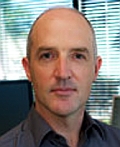 Paul Wilson
Paul Wilson Paul Wilson has twenty years' involvement with the Internet, including over ten years' experience as the Director General of APNIC. As part of this current role, he represents the activities and interests of the Asia Pacific Internet community in local and global forums related to the development and management of the Internet.
Previously the Chief Executive Officer of Pegasus Networks, the first private ISP established in Australia, Paul also acted as a consultant to the United Nations and other international agencies. As a primary consultant on Internet projects, including the PAN Program with the International Development Research Centre (IDRC), Paul helped to introduce Internet services for the first time in several developing economies. Paul is a highly respected member of the global Internet community and participates in the following organizations: APIA, APNG, ISIF, NRO, ISOC and dotAsia.
 Richard Wood
Richard Wood Richard Wood has worked in policy and research at InternetNZ for the past three years, covering issues such as IPv6, Internet filtering, spam and copyright. He began working in ICT 20 years ago as a programmer and technical support officer, before embarking on an award-winning career in ICT journalism and publishing. Richard has been Editor of Computerworld Australia, Australian Information Week, Computerworld New Zealand and the New Zealand Telecommunications Review.
The Australian IPv6 Summit 2009 is hosted by

|

|

|



















